Search results (510)
Skip results of view Studies
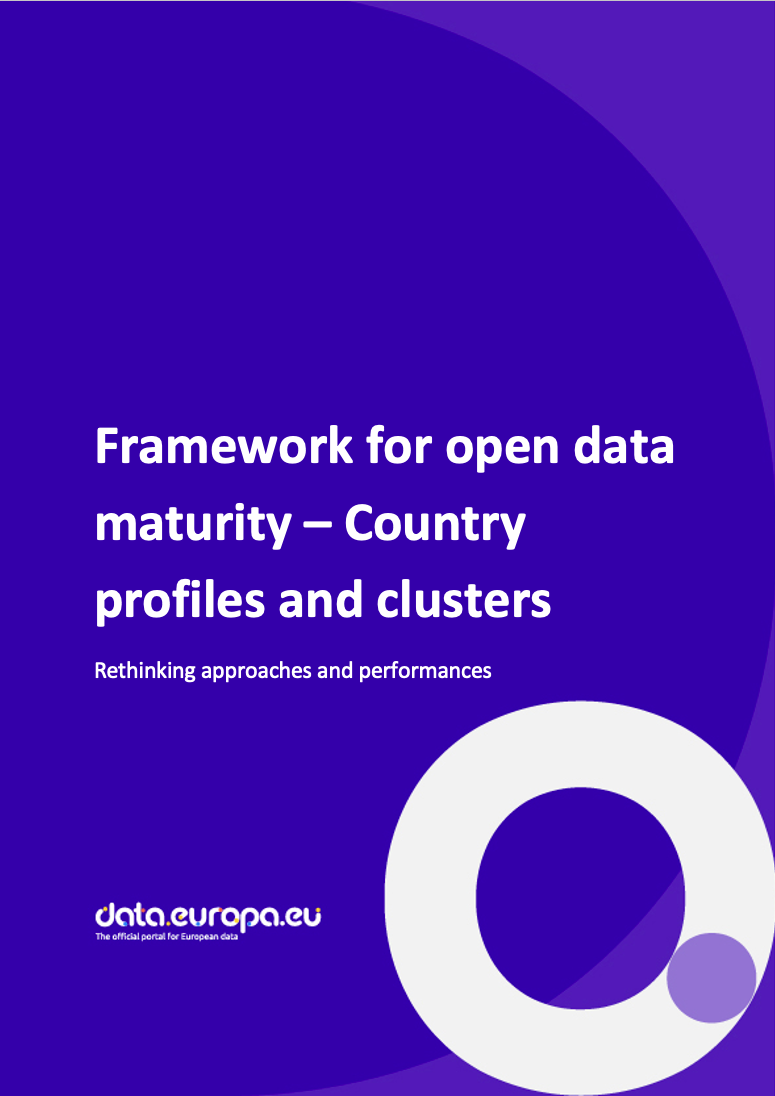
Study
The Open Data Maturity Assessment of the Publications Office of the EU and European Commission is a highly recognised and widely known study in the field of open data. It evaluates progress and effectiveness of open data initiatives across four thematic dimensions intended to capture the end-to-end value chain of open data: Policy, Portal, Quality and Impact. The current open data maturity levels...
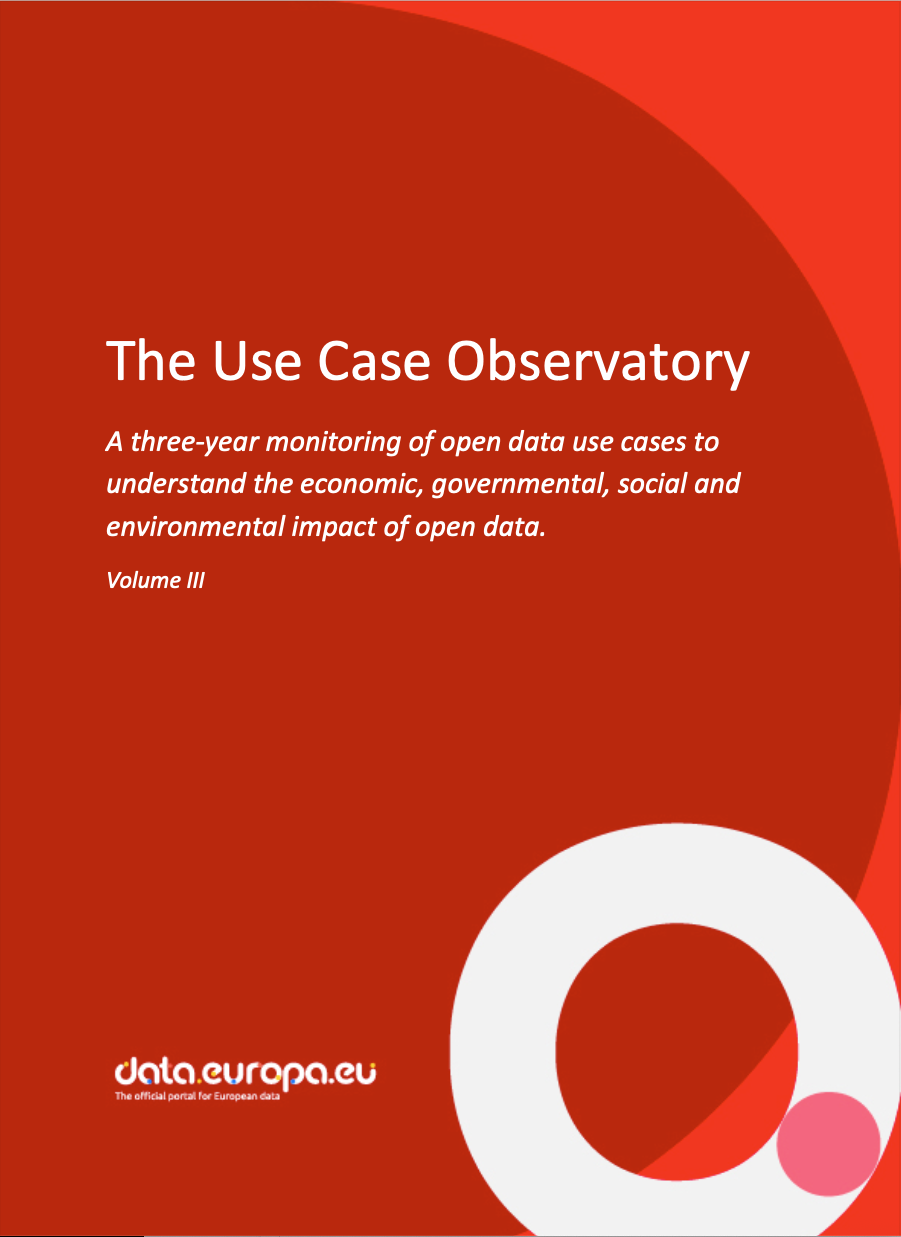
Study
The Use Case Observatory is a three-year research initiative led by the European Data Portal to assess the economic, governmental, social and environmental impact of open data across Europe. This third and final volume builds on previous findings by analysing 13 active use cases, each demonstrating how open data can drive innovation, transparency, inclusion and sustainability. The report...
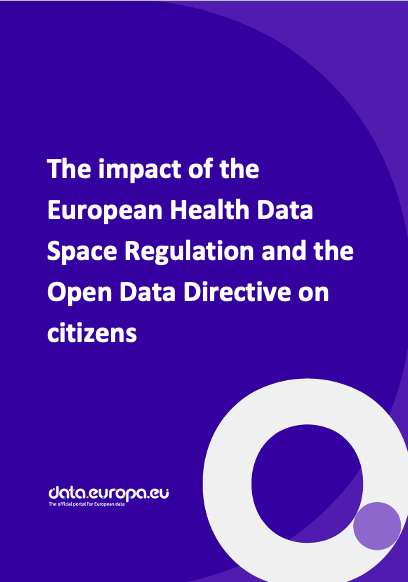
Study
The European health data space (EHDS) aims to increase the availability, reusability and standardisation of health data systems across the EU, particularly by promoting the interoperability and the security of electronic health records systems. The EHDS complements the ODD, which focuses on making government-held data publicly available for reuse. The combination of data being made available both...
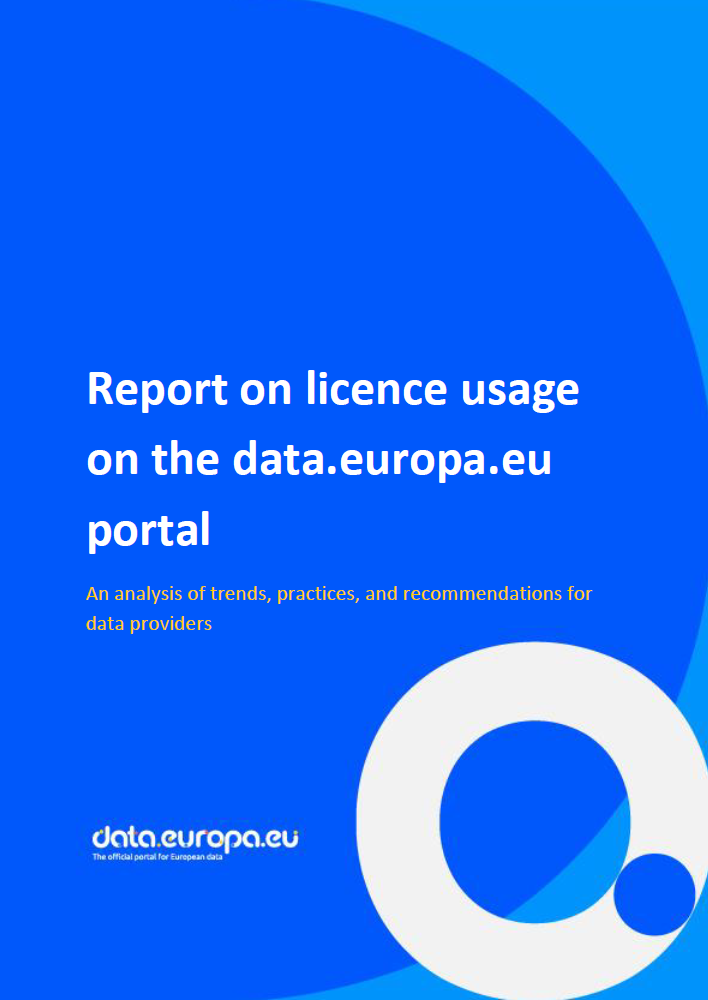
Study
Report on licence usage on the data.europa.eu portal
This report addresses the challenges faced by data providers and reusers in navigating licensing frameworks for datasets, emphasizing the impact of licensing decisions on data reuse and the European market. Data providers must select from a wide range of licenses, shaping reuse opportunities and overall data value, while reusers must understand and comply with licensing terms, often contending...
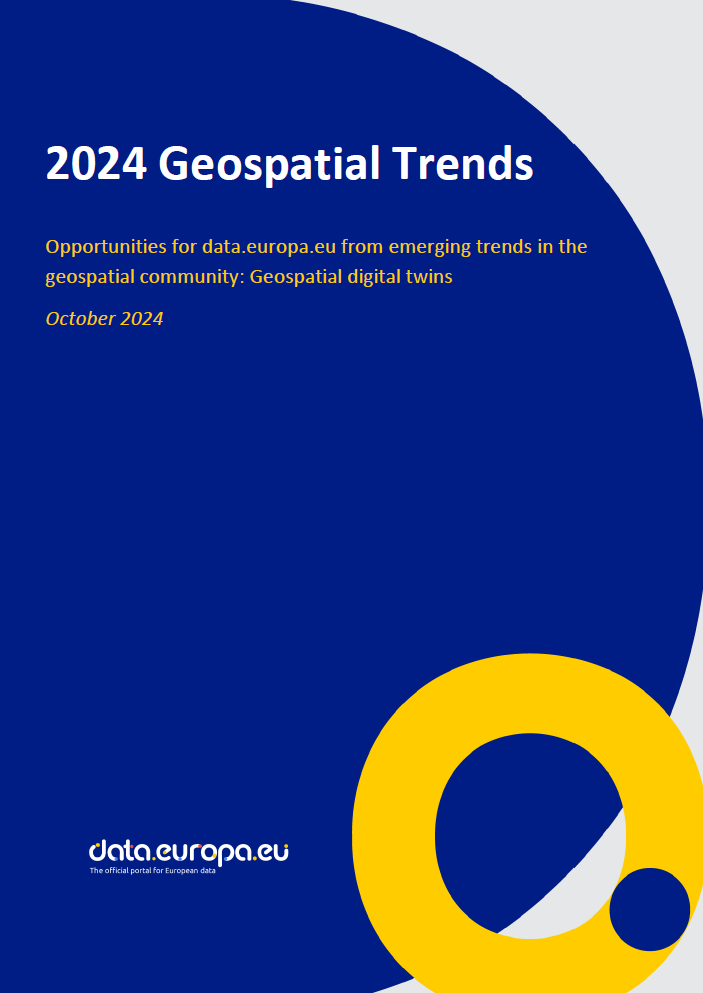
Study
2024 Geospatial Trends
The report explores trends in geospatial data, focusing on geospatial digital twins and their relevance for data.europa.eu. The platform enhances access to public-sector information by aggregating metadata from geodata and open data catalogues across Europe. Geospatial data linked to locations provides valuable insights, and the report emphasizes strengthening ties between open geospatial and...
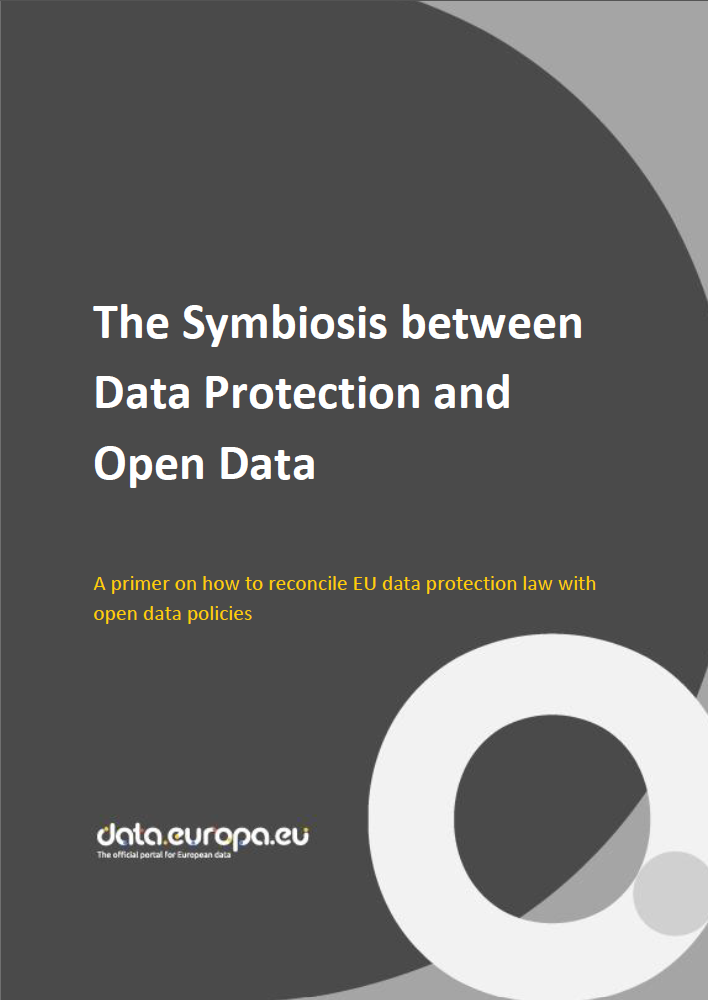
Study
The Symbiosis between Data Protection and Open Data
The European Union recognizes personal data protection as a fundamental right, with the GDPR outlining strict rules for processing personal data fairly, transparently, and only for specified purposes. Open data laws, developed in parallel, require public bodies to make information accessible for reuse, which can sometimes clash with data protection rules. When datasets include personal data...
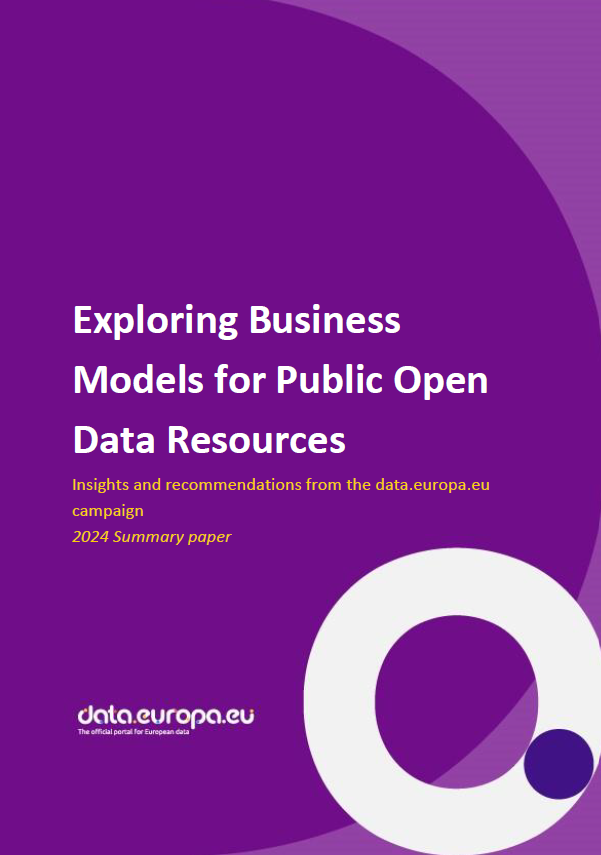
Study
Exploring Business Models for Public Open Data Resources
This report investigates how the public sector can effectively reuse open data through innovative business models. It builds on a year-long campaign that included research, webinars, and focus groups, presenting findings and offering policy recommendations for Europe’s data ecosystem. The report examines the untapped economic potential of open data, which, while accessible, requires strategic...
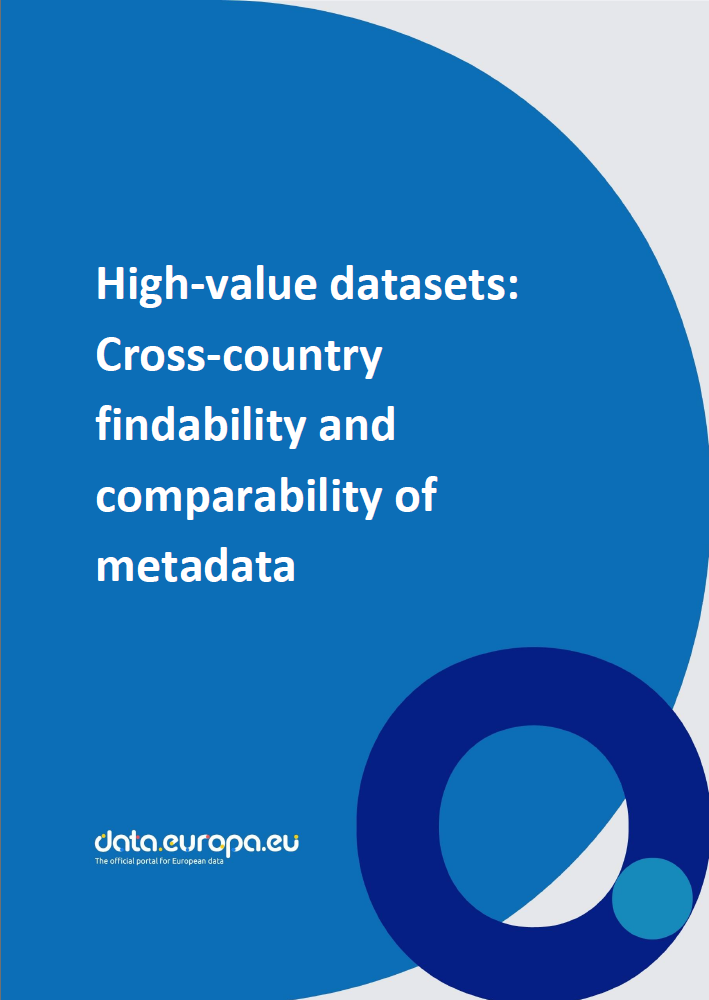
Study
High-value datasets: Cross-country findability and comparability of metadata
This report explores the implementation of high-value datasets (HVDs) across EU-27 Member States, a key step in promoting open data and cross border data reuse following the enforcement of the HVD Implementing Regulation (the Regulation). The study assesses the findability and metadata comparability of 24 HVDs from Denmark, Estonia, Latvia, and Finland, focusing on six thematic categories outlined...
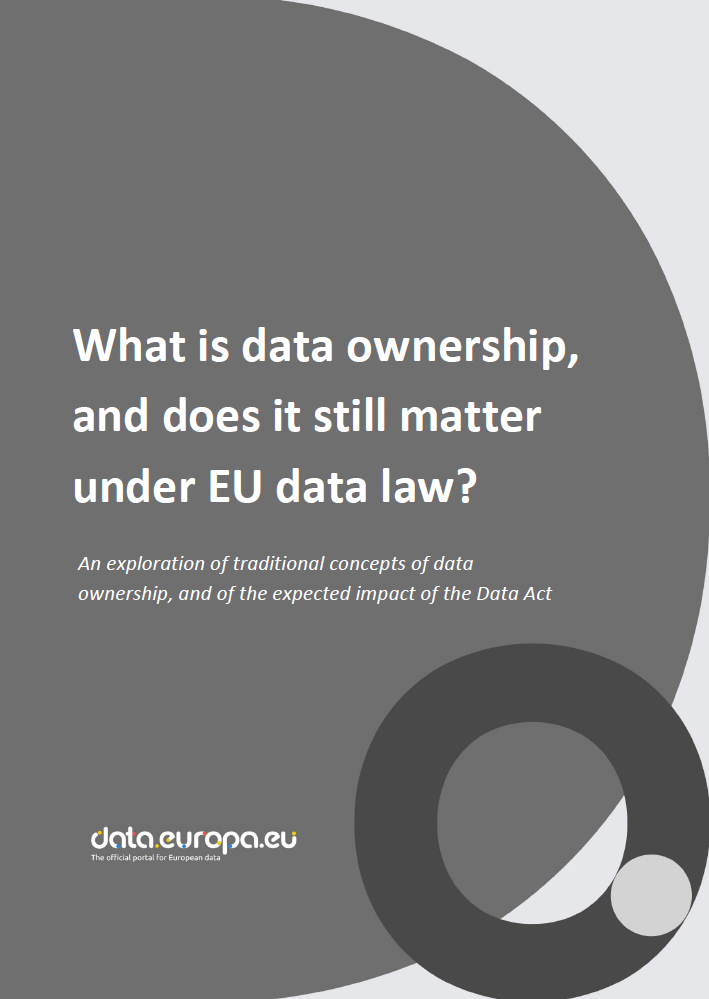
Study
What is data ownership, and does it still matter under EU data law?
This report examines the concept of data ownership, noting its lack of definition and regulation at the EU level and in legal literature. Due to the non-rivalrous, non-exclusive, and inexhaustible nature of data, the focus should shift from ownership to access and usage rights. The Data Act addresses this by targeting data holders and emphasizing access and usage rights rather than ownership. This...

Study
Granular Data Governance Systems for Open Data
This paper explores the concept of data governance, emphasizing the processes and systems involved in managing the availability, usability, integrity, and security of datasets. It discusses the balance between straightforward and complex data governance systems, particularly in the context of the European data strategy and the Open Data Directive. The Directive aims to make public sector...
